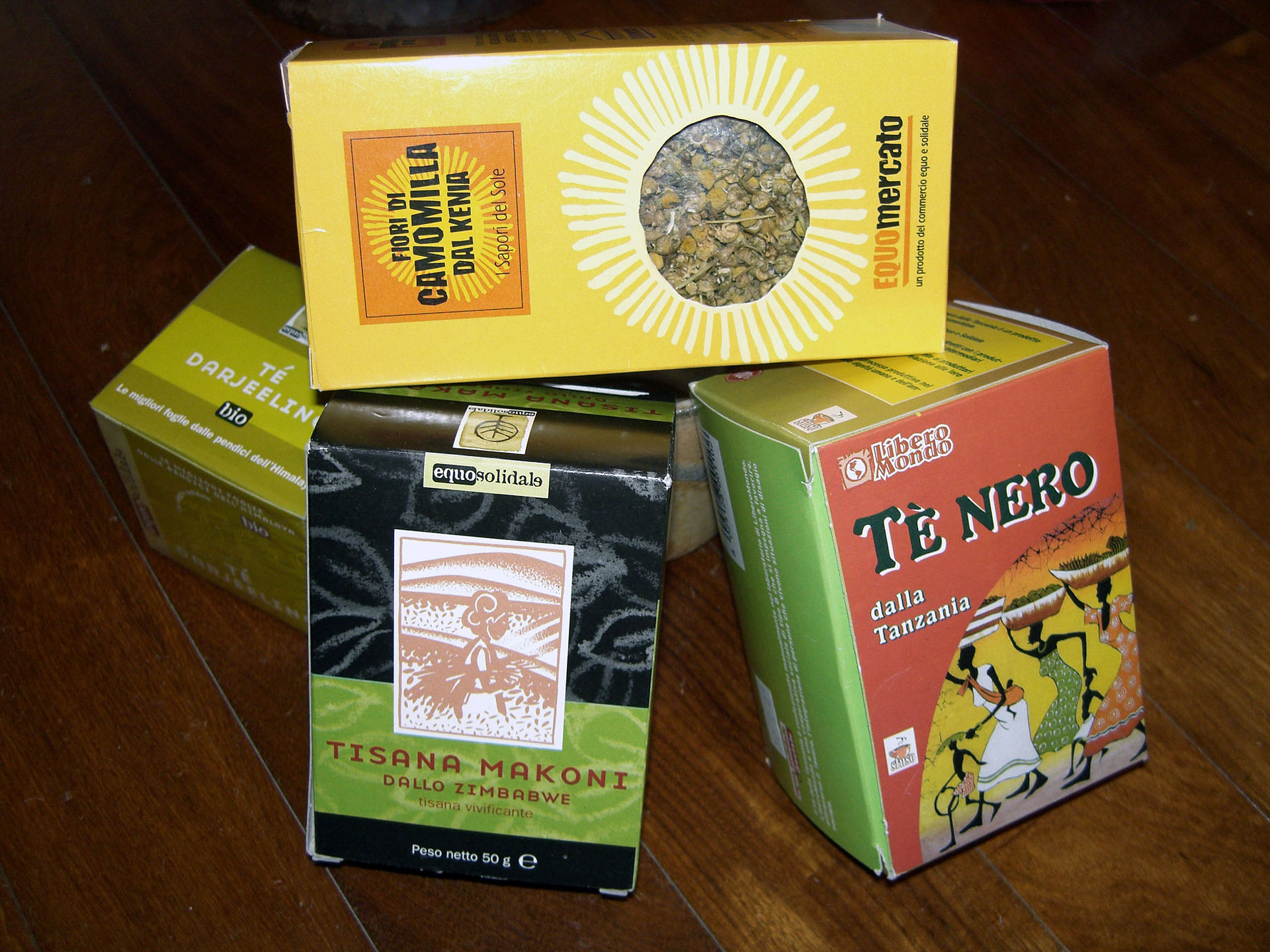Defying the Social-Darwinist underpinnings of the market-based economy, the Fair Trade movement is a consumer-driven, capitalist approach to equitable agricultural commerce. A champion of poverty reduction, safe working conditions, sustainability, gender equity, and democracy, the movement aims to remove exploitative intermediaries to increase the monetary yield for small farmers; at the same time, it seeks to establish ethical relationships between producers in the global south and consumers in the global north. On its surface, Fair Trade does just that. It empowers conscientious consumers to support fair agricultural practices in developing communities. But behind this appealing company brand, a paradoxical contradiction resides within the movement: Fair Trade obscures a history of injustice and exploitation in the plantations that bear its label. The ongoing social and cultural inequities that bind laborers to plantations are effectively and systematically masked by branding that says otherwise. While the “fair trade” philosophy nobly endorses social justice ideals, the practice itself walks a fine line between ethics and organizational expansion, ultimately becoming a machine for profit that exploits moral values for its sales.
The fair trade movement, was, in some sense, an atonement for the colonial origins of food production in the global south. Most fair trade products themselves are crops of empire—tea, sugar, coffee, cotton, chocolate, and bananas, among others—goods that are readily consumed in the United States and Europe, yet produced in former colonies in Southeast Asia, Latin America, and the Caribbean. By supporting small, farmer-owned, democratically-run cooperatives, the movement aimed to reduce poverty, increasing farmer income and the long-term sustainability of agriculture for farmers and their families. However, what started as a social movement mushroomed, growing in popularity so rapidly that labelling and certification systems were required to manage and maintain the integrity of the movement. This set the stage for the Fair Labelling Organization in 1997. At this point, fair trade became more than just a movement—it was a market in and of itself.
At its inception in 1997, Fair Labelling Organizations International (FLO) sought to consolidate several fair trade initiatives under a single label for producers that met specific certification standards. In particular, the label was conferred upon small, democratically-run farmer-owned cooperatives. The intention was to “address the perceived failure of the market and remedy important social issues.” Fair Trade originally sought “not only to protect farmers but also to correct the legacy of the colonial mercantilist system and the kind of crony capitalism where large businesses obtain special privileges from local governments, preventing small businesses from competing and flourishing.”
FairTrade America is now ironically extending certification to plantations like those in Darjeeling, India. Anthropologist Sarah Besky, a professor at Brown University, analyzes the constellational implications of the ‘fair trade plantation’ in her book, The Darjeeling Distinction: Labor and Justice on Fair-Trade Tea Plantations in India. The book sheds light on how the Darjeeling plantations of the twenty-first century are inextricably bound with a colonial past and the notions of justice and fairness that grow out of this history. Her work highlights that plantations are “hierarchical, colonially derived industries in which workers depend upon owners not just for money but also for food, medical care, schools, and housing.” Plantation work cannot—or at least should not—be packaged as ‘fair’ when its “hierarchical structure makes it impossible for resources to be managed ‘jointly’.” So while Fair Trade attempts to infuse justice into the economy, its solution represents a tunnel-visioned approach. Labor does not exist in a vacuum, yet Fair Trade treats it as such. True fairness sees the linkages between laborers and managers, and views justice from a contextual perspective.
Thus, Darjeeling’s colonial history foregrounds the value of tea in moral terms as well as economic ones: the role of labor in the production of tea both reflects and reacts to vestiges of colonialism, endowing Darjeeling tea with a ‘value’ that transcends price. Non-market values of “justice,” “fairness,” and “heritage” are packaged into and sold as part of the Fair Trade product. Yet Fair Trade ignores a central contradiction: ‘Fairness’ is impossible in the hierarchical relations between workers and managers, as long as workers remain dependent on the plantation for non-monetary services such as food and housing.
Paradoxically, the Fair Trade label infuses products with added non-market values of ‘fairness’ and ‘justice’ that distance customers from laborers by constructing false perceptions of actual working conditions. As Besky notes, “Fair trade consumers believe that their purchases have the power to enact change in agricultural communities on the other side of the world.” Yet, when this label is applied to the inherently hierarchical social order of plantations, “fair trade” becomes as problematic as it is paradoxical. It presupposes that laborers and managers are co-equal, possessing similar interests, property rights, and prerogative. But this is fundamentally untrue: Plantation labor is never ‘fair.’ Laborers, while not legally bound, are tied to the plantation by social forces as well as the non-monetary provisions of their work. To a great extent, these dependencies and social ties put workers on an unequal plane with owners. In this sense, Fair Trade sanitizes the unsavory colonial underpinnings of plantation-based labor in order to sell the idea of justice rather than justice itself. In other words, Fair Trade purportedly attempts to create a relationship between producers and consumers grounded in fairness, which, in reality, is false. The “fairness” label effectively detaches consumers from the fundamental unfairness that the plantation confers, all the while selling the consumer the fabricated peace of mind that the products they buy are not wrought of exploitation.
We must ask ourselves how labels reinforce or perpetuate the very conditions they stand against. To what extent do labels construct false consumer images that feed the west’s appetite for the idea of morality, and not morality itself? Labels such as “Fair Trade” distance consumers from reality, allowing them to consume images of ‘fairness’ and ‘justice’ with their coffee, while remaining blissfully unaware of the inequity that lies behind the production of these goods
